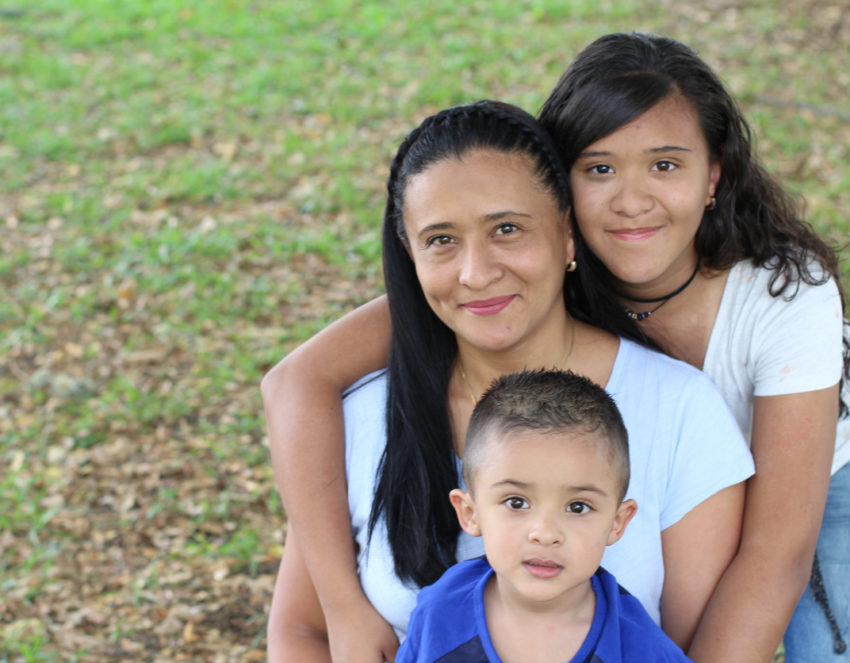
Share On Social!
Not all children in Texas have equal access to healthy food and quality healthcare, and stable economic security.
Latino children and other children of color face disparities in these areas due to historic systemic racism.
The details of these disparities are covered in a new report, “Texas KIDS COUNT: Health Equity for Every Texas Child,” led by nonprofit group Every Texan with support and funding from the Annie E. Casey Foundation and Methodist Healthcare Ministries of South Texas.
The report explores three key areas ─ food insecurity, health insurance, and economic opportunity ─ and what public policy can address inequities so all Texas children can live healthier lives.
The ‘Texas KIDS Count’ Report on Food Insecurity
Food insecurity is prevalent in the United States, especially in Latino and Black communities.
U.S. Latino and Black households are more likely to suffer food insecurity (16.2% and 21.2%, respectively), which is being without reliable access to a sufficient quantity of nutritious food, than the national average (11.1%), according to USDA data, Salud America! reports.
COVID-19 is worsening food access, especially in Texas.
“Rates of food insecurity in November 2020 were still high for Texans across the board, but they were at least twice as high for Black (29 percent) and Hispanic (20 percent) adults as what white adults reported (12 percent) for households with children,” according to the report.
One of the main reasons behind this is unemployment, which has been exacerbated by COVID-19. Other reasons include historical exclusion from wealth-building policies and disinvestment from low-income communities.
While federal relief programs like SNAP and WIC are helpful for some families, they are not applicable for others, like immigrant families or college students.

“In general, certain legal immigrants are not eligible for SNAP, and undocumented immigrants are entirely excluded. Financial support through federal stimulus payments that could have been used for food was also denied to undocumented immigrants, and entire families were denied payments if any adult family member did not have a Social Security number,” according to the report.
To address food insecurity, Every Texan’s report recommends expanding federal nutrition programs and eliminating barriers that prevent many from being eligible.
The ‘Texas KIDS Count’ Report on Health Insurance
Having health insurance and healthcare coverage makes a substantial impact in children’s health.
Unfortunately, Texas has some of the highest uninsured rates for children in the country. This is particularly prevalent in the Latino community.
This disparity stems from historic racial discrimination.
“Many children of color live in neighborhoods that are more polluted, have fewer resources, and face over-policing, threat of deportation, and outright discrimination. The negative health impacts of discrimination make it all the more necessary to ensure equitable health insurance coverage rates across groups. Yet Hispanic children continue to experience a high uninsured rate, and Texas holds the largest share of the nation’s uninsured Hispanic children, at 36 percent of the national total. Hispanic children in Texas are almost twice as likely to be uninsured as non-Hispanic children,” according to the report.
While federal programs like Medicaid and CHIP work to provide healthcare to families without private insurance, inequities in education and employment, as well as policies like the public charge rule, disincentivize Latino families to seek coverage.
“Successfully enrolling Hispanic populations in health insurance requires targeted Medicaid and CHIP outreach, conducted in individuals’ primary languages and by trusted community members, especially for immigrant families. Nationally, 17 percent of low- to middle-income Hispanic families reported not being aware that they could apply to public resources like Medicaid, according to one 2015 study, and even immigrants with legal permanent status believed that immigration status disqualified them for public aid. Furthermore, fears of deportation may minimize the involvement that undocumented individuals and their families feel comfortable having with the government, limiting program enrollment unless effective outreach is done,” according to the report.
Every Texan’s report recommends several policies to improve health insurance coverage:
- Ensure funding is protected for federal programs like Medicaid and CHIP
- Lower premiums and improve planes with limited benefits in private health insurance
- Remove barriers to enrolling in health insurance programs
- Provide 12 months of continuous eligibility for children on Medicaid to prevent gaps from cycling off coverage due to income changes
- Reduce medical debt by providing hospital assistance and ending surprise ambulance bills
“By protecting all children’s right to have affordable and accessible health care coverage, we invest in the success of future generations and set up more equitable conditions to see children thrive,” according to the report.
The ‘Texas KIDS Count’ Report on Economic Opportunity
Having equitable economic opportunity makes a substantial difference in how children are able to succeed later in life.
Many aspects factor into this, such as access to work/childcare, profitable wages, support for immigrant families, and education and school funding.
Unfortunately, Latinos face many inequities and barriers to these.
Some groups, like Latino and immigrant residents, are more likely to live far from their jobs and use transit to commute.
“Presently, 15 states and Washington, D.C. allow immigrants without documentation to obtain a driver’s license — but Texas does not. The benefits of allowing all individuals the chance to get a driver’s license are more than simply helping Texans get to work. Public safety increases for the entire community as individuals gain access to licenses, with safer roads and fewer hit-and-runs,” according to the report.
Minimum wage in Texas is $7.25, which makes it difficult for some families to get by. Additionally, discrimination has led to a large wage gap for Latinos and women.
“A long history of discrimination and restricted opportunities has limited the wages for women and people of color compared to their peers so that they take home less money for the same hours of work in every job category in Texas,” according to the report.

Many Latino children also face obstacles to receive a proper education. Latino and Black children have less educational opportunities. COVID-19 has made this worse.
“Though schools have been moved online due to the pandemic, Texas has one of the worst home internet access rates for children nationwide. Only seven states have worse rates of access to the internet and access to a device at home for children. Rural communities and communities of color in Texas suffer the lowest connectivity rates, meaning that these students are most at risk of lagging behind during the public health crisis,” according to the report.
Having a poor K-12 education decreases the chances of children going to college. Even those that make it to college may struggle with high costs and debt.
“For low- and moderate-income Texans, paying for housing, food, books, and other supplies can be a significant source of hardship. Without additional support, housing instability and food insecurity is a very real possibility for students. Many students need to work to cover expenses, but at Texas’ minimum wage of $7.25 an hour, moderate income students would have to work 21 hours a week to cover average unmet expenses,” according to the report.
Every Texan listed several potential policies to address barriers to education and work opportunities to improve economic security:
- Eliminate barriers for immigrants to receive driver’s licenses and Medicaid coverage
- Enact paid family, medical, and paid sick leave
- Increase minimum wage
- Reform unemployment insurance and benefits
- Invest more funding into public education and address funding gaps for English Language Learners
- Increase economic opportunities for college students, like financial aid funding and SNAP
“By supporting smart policies that improve schools, jobs, and economic opportunity overall, we can ensure that our outcomes are not limited by the condition of the environments we live in,” according to the report.
How Else Can We Help Latino Children?
Many of the policy suggestions in Every Texan’s Texas KIDS COUNTY report would be very helpful for Latino children and families who are struggling with food insecurity, lack of health insurance, and economic opportunities.
Another way to help Latino kids is to support children who experience trauma.
Download the free Salud America! “Handle With Care Action Pack.”
The Action Pack helps police, school, and mental healthcare leaders start the Handle with Care program, in which police notify schools when they encounter children at a traumatic scene, so schools can provide support right away. They can virtually support kids if school is out for summer or closed due to COVID-19.
By The Numbers
142
Percent
Expected rise in Latino cancer cases in coming years



